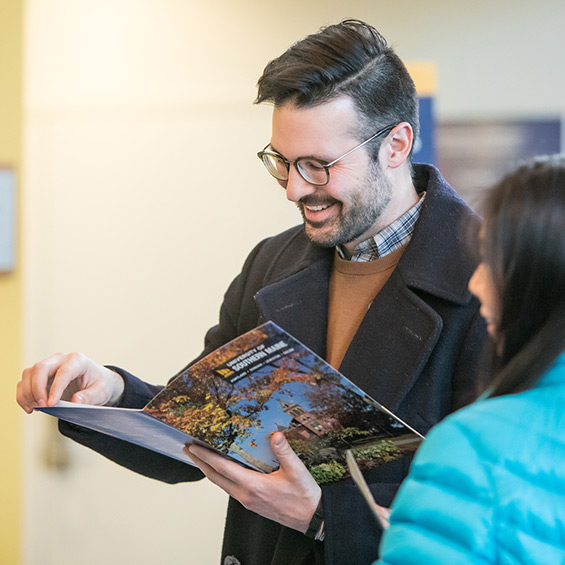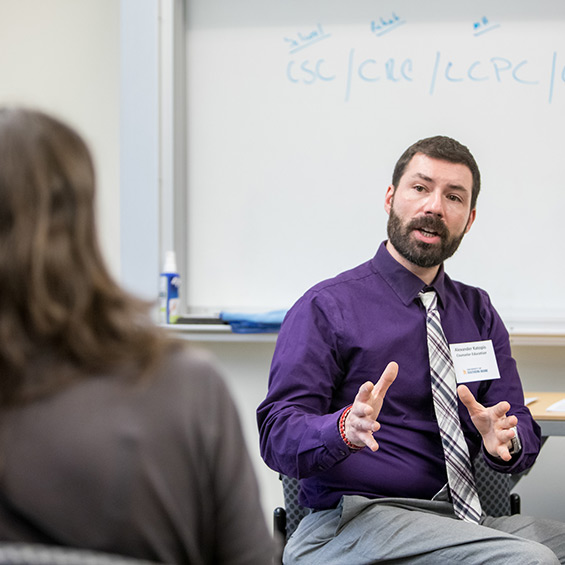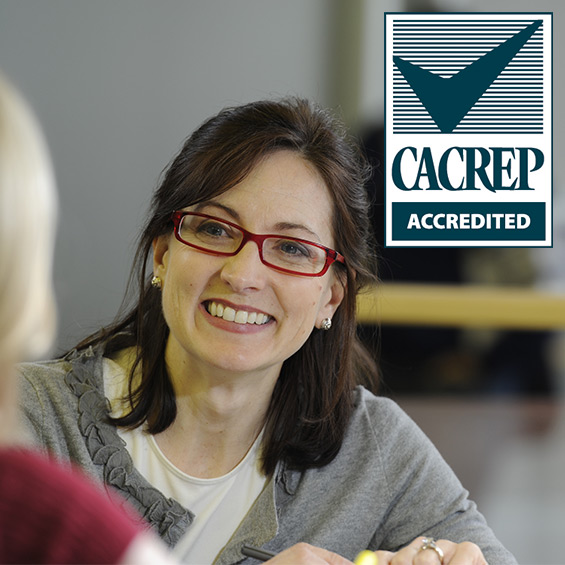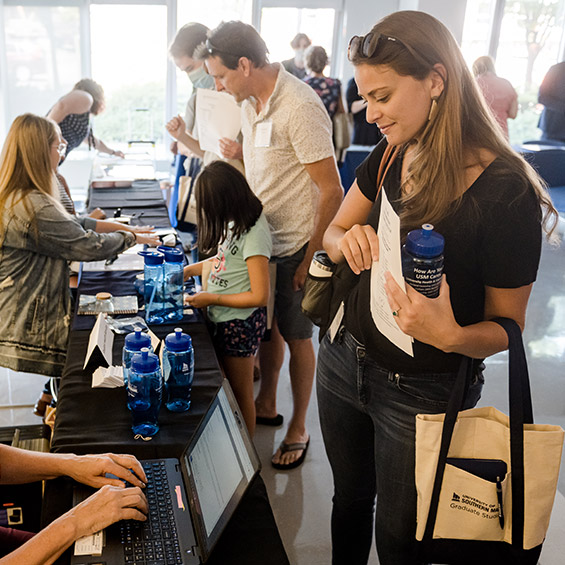Counseling — Clinical Mental Health Concentration
- Master of Science (MS)
- Master’s Program
Modes of study:
Turn your compassion into a meaningful career with a master’s degree in counseling from USM. Our nationally accredited program (CACREP) provides training in the dynamic aspects of the mental health system. You engage with classmates, receive support from experienced faculty, and develop your professional identity through rewarding field placement experiences.
State & national credentials
Prepare to sit for the Counselor Preparation Comprehensive Examination (CPCE) and the National Counselor Examination (NCE)
Pursue an area of expertise
Choose electives for a specialization in Family Systems or Substance Misuse Counseling
Prep for success
USM students have a 99% pass rate on their licensing exams — and 100% receive paid positions after graduating
Credit hours
63 required credit hours. Most courses are equal to 3 credit hours.
Program duration
Study full-time and finish in as few as 2 years or study part-time and finish in 4 years.
Department & School
Admissions
Formal interview required. Apply by February 15 for fall term, October 1 for spring term. No GRE requirement.

Transformative learning
Mental health counselors are facilitators, collaborators, advocates, and lifelong learners. The counseling curriculum at USM challenges your critical thinking, reflectivity, and reflexivity. You explore the interconnections between mind and body health. You collaborate to build your diagnostic and ethical decision-making skills. Along the way, you gain the confidence to advocate for community resources, multiculturalism, trauma-informed care, and social justice.
Community partnerships
USM has long-standing partnerships with hundreds of community partners across the region, including 80 agency sites and more than 60 area schools. Your field placement experience matches you with an organization that aligns with your professional and personal interests. You work and learn alongside licensed experts, providing services for a diverse range of clients.


Experience beyond the classroom
Your field study provides the on-site clinical experience you need to succeed in direct client care. During your practicum, you refine your skills and develop your therapeutic style. Your studies culminate with an intensive on-site internship, where you collaborate with a licensed practitioner to demonstrate the skills, concepts, and theories you’ve learned.
Where can you go with a master’s degree in clinical mental health counseling?

Licensure & certification
Program graduates qualify to become a conditionally Licensed Clinical Professional Counselor (LCPC-c) in Maine. Those pursuing expertise in Substance Abuse can also qualify to apply for their CADC (Certified Alcohol and Drug Counselor) depending on field placement site.
We're here to help answer questions about costs
What to expect when you study for a master’s degree in clinical mental health counseling at USM

Expert faculty
Our faculty are deeply committed to student success, often involving students in their research and presentations. They engage in continuous scholarship related to areas such as counselor self-care, altruism and moral courage, rehabilitation and aging, suicide awareness, and resiliency.

Nationally accredited
Our program is accredited through the Council for the Accreditation of Counseling and Related Education Programs (CACREP).

Graduate student support
Connect with the Office of Graduate Studies for professional development, scholarship, and graduate assistantship opportunities. Join fellow grad students through Peer Mentorship and the Graduate Student Board.
Admission information: MS in Counseling with a Concentration in Clinical Mental Health
Application deadlines
| Deadline | Fall term start | Spring term start |
|---|---|---|
| Final | February 15 | October 1 |
Our graduate admissions counselors are here to answer your questions about the admissions process, our academic programs, and student support services.



